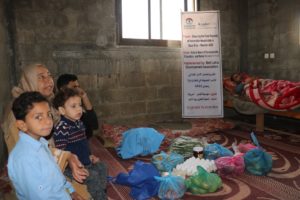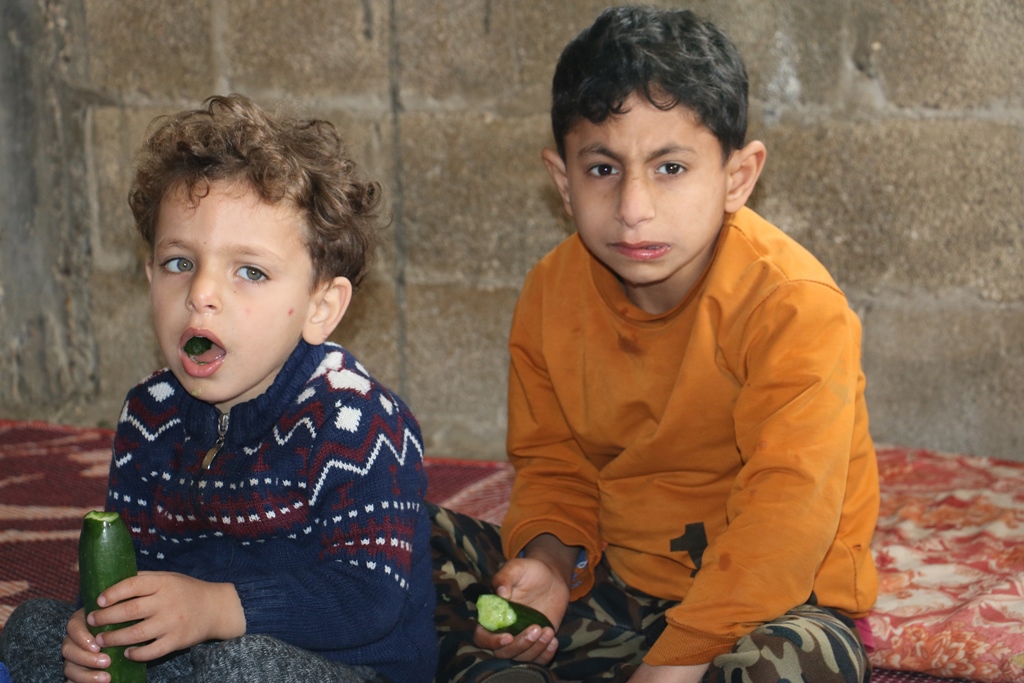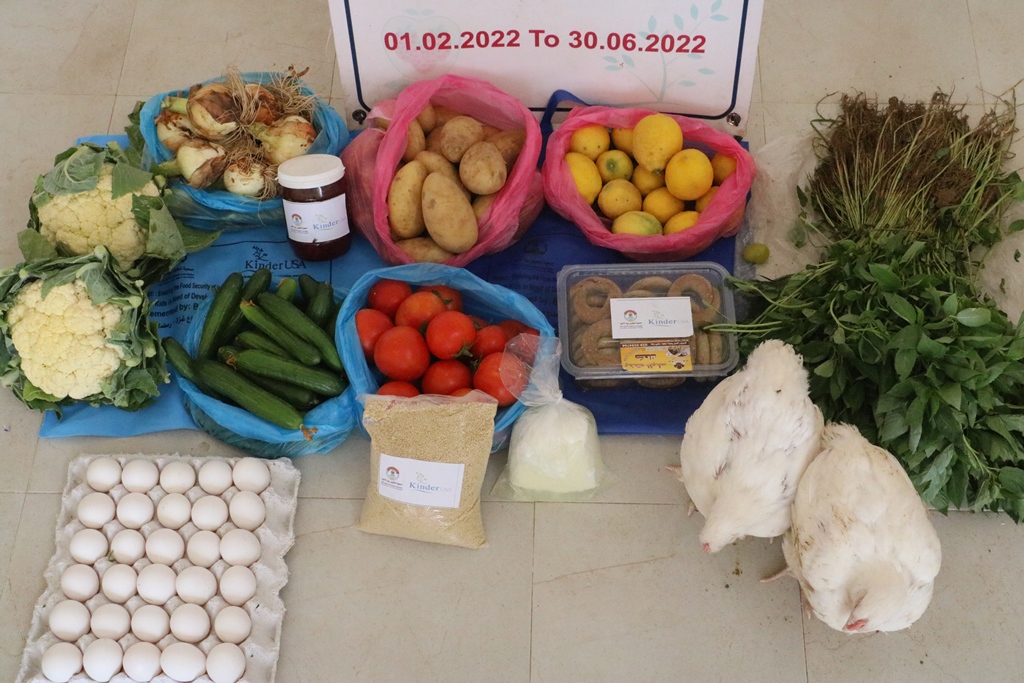Lebanon in Crisis
“Fuel is really a problem for everyone, along with electricity. Families cannot store food, nor can they cook. As a team we made the decision to distribute prepared meals so families can eat nutritiously,” said Loubane, Executive Director of FingerPrint of Change. Linked to the global food and fuel crisis coupled with three years of…

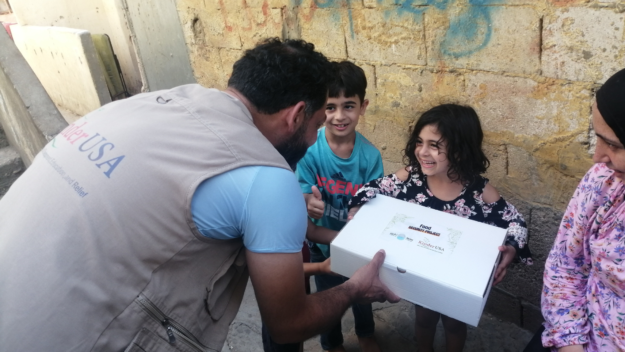
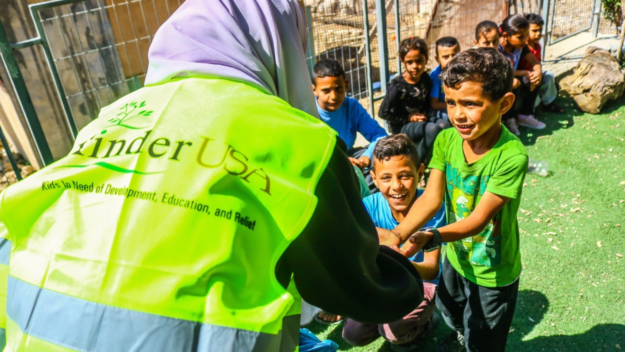
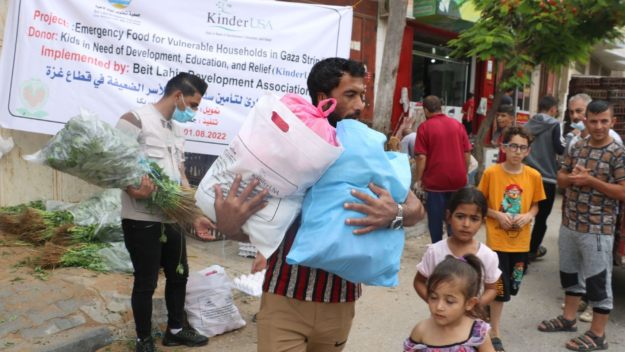
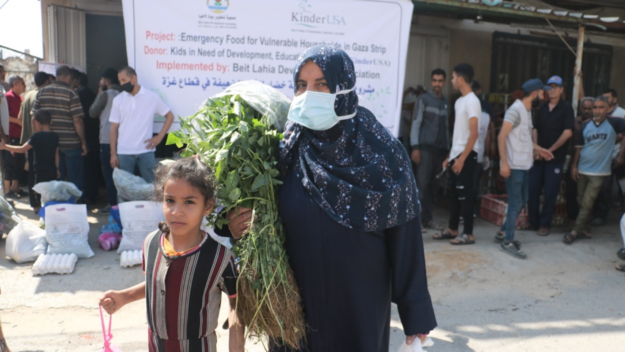
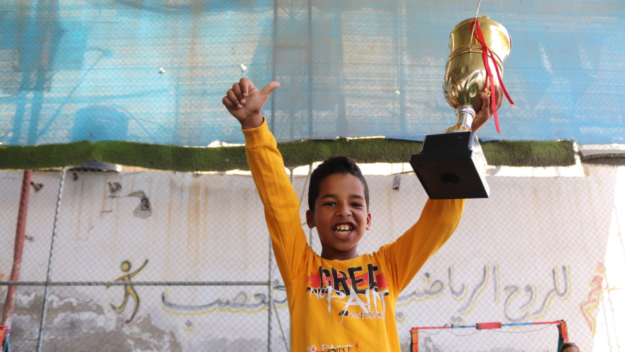





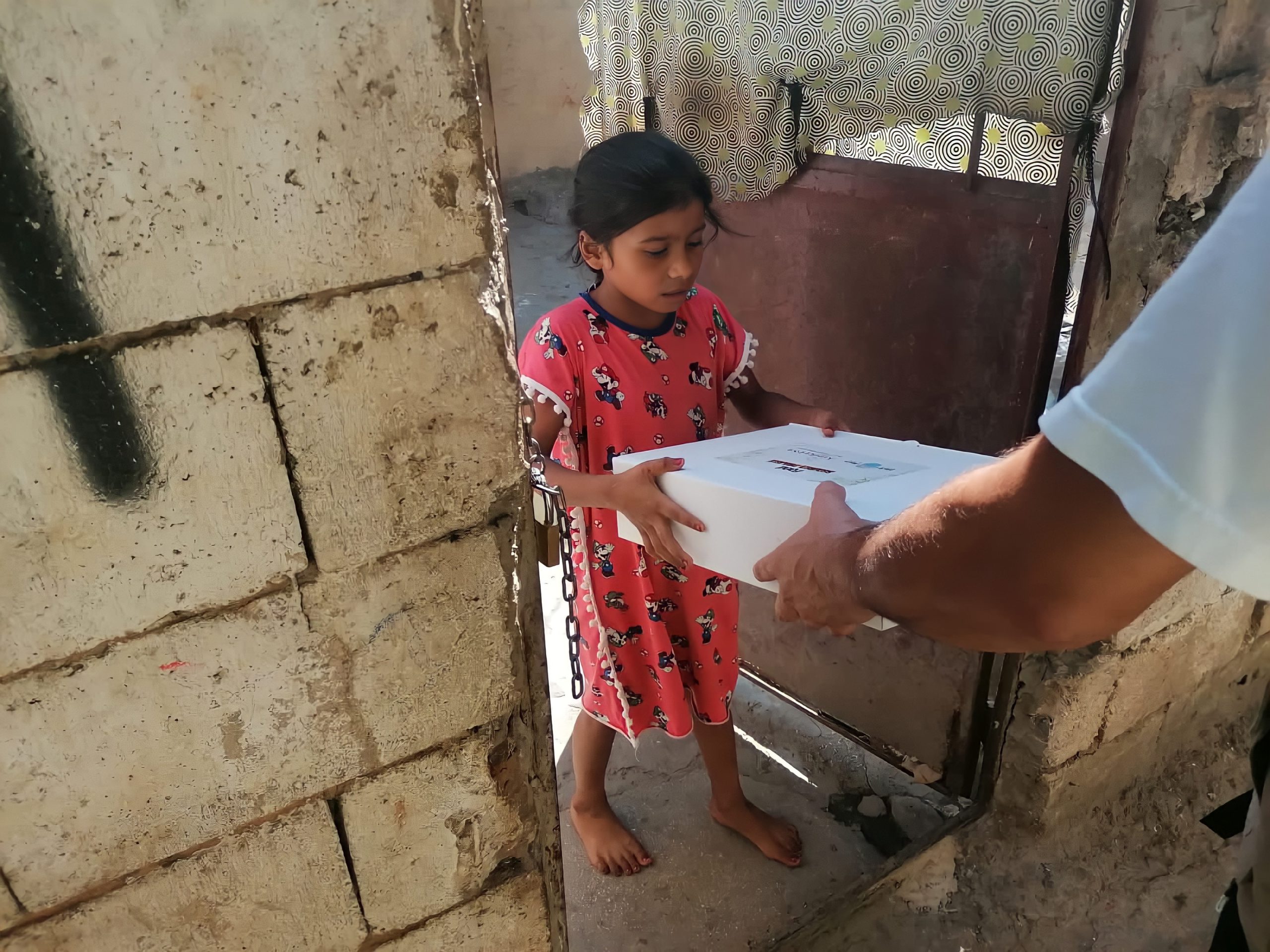 Linked to the global food and fuel crisis coupled with three years of severe economic and financial crisis, Lebanon is witnessing public services failing its population while the price of food items soars out of reach for most. With the war in Ukraine where 70% of Lebanon’s wheat came from along with depleted reserves due to the explosion in Beirut’s’ port, wheat is very difficult to procure, and families wait for hours in line for bread.
Palestinians living in the camps in Lebanon are not able to secure enough food to feed their families. With prices for food, medicine, fuel and rent continuing to rise, the level of poverty among Palestinian refugees is also increasing, now recorded at 86 percent according to the United Nation.
Linked to the global food and fuel crisis coupled with three years of severe economic and financial crisis, Lebanon is witnessing public services failing its population while the price of food items soars out of reach for most. With the war in Ukraine where 70% of Lebanon’s wheat came from along with depleted reserves due to the explosion in Beirut’s’ port, wheat is very difficult to procure, and families wait for hours in line for bread.
Palestinians living in the camps in Lebanon are not able to secure enough food to feed their families. With prices for food, medicine, fuel and rent continuing to rise, the level of poverty among Palestinian refugees is also increasing, now recorded at 86 percent according to the United Nation.
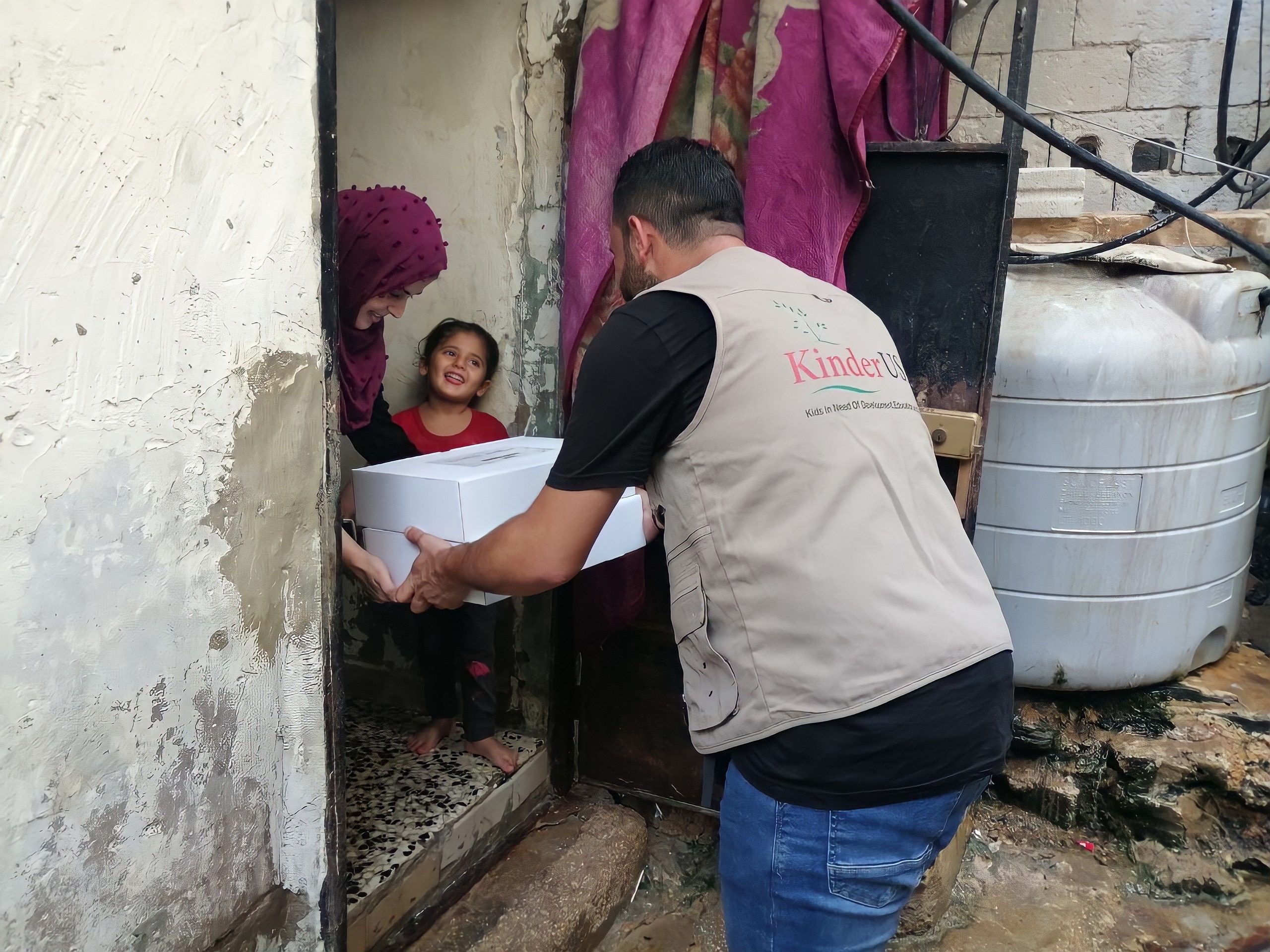 This is equally true for Syrians in informal settlements across the country, and impoverished Lebanese many of whom are now homeless. Access to healthcare, electricity, and clean water is also out of reach with families turning to aid groups for assistance.
Our partner on the ground, FingerPrint of Change, has begun distribution of freshly prepared food to 1600 families in the camps of Sabra and Shatila and Burj el Barajneh, along with settlements in Bekaa, and the south for the month of August. The food is prepared by women who are paid a small stipend, with all the ingredients bought locally to help boost the local economy.
This is an ongoing crisis in Lebanon where the country hosts the largest number of refugees “per capita per square kilometer in the world” according to the United Nations. Like all communities in Lebanon, refugees are making difficult choices to survive such as going without meals, necessary health care, and sending children to find work instead of going to school.
This is equally true for Syrians in informal settlements across the country, and impoverished Lebanese many of whom are now homeless. Access to healthcare, electricity, and clean water is also out of reach with families turning to aid groups for assistance.
Our partner on the ground, FingerPrint of Change, has begun distribution of freshly prepared food to 1600 families in the camps of Sabra and Shatila and Burj el Barajneh, along with settlements in Bekaa, and the south for the month of August. The food is prepared by women who are paid a small stipend, with all the ingredients bought locally to help boost the local economy.
This is an ongoing crisis in Lebanon where the country hosts the largest number of refugees “per capita per square kilometer in the world” according to the United Nations. Like all communities in Lebanon, refugees are making difficult choices to survive such as going without meals, necessary health care, and sending children to find work instead of going to school.
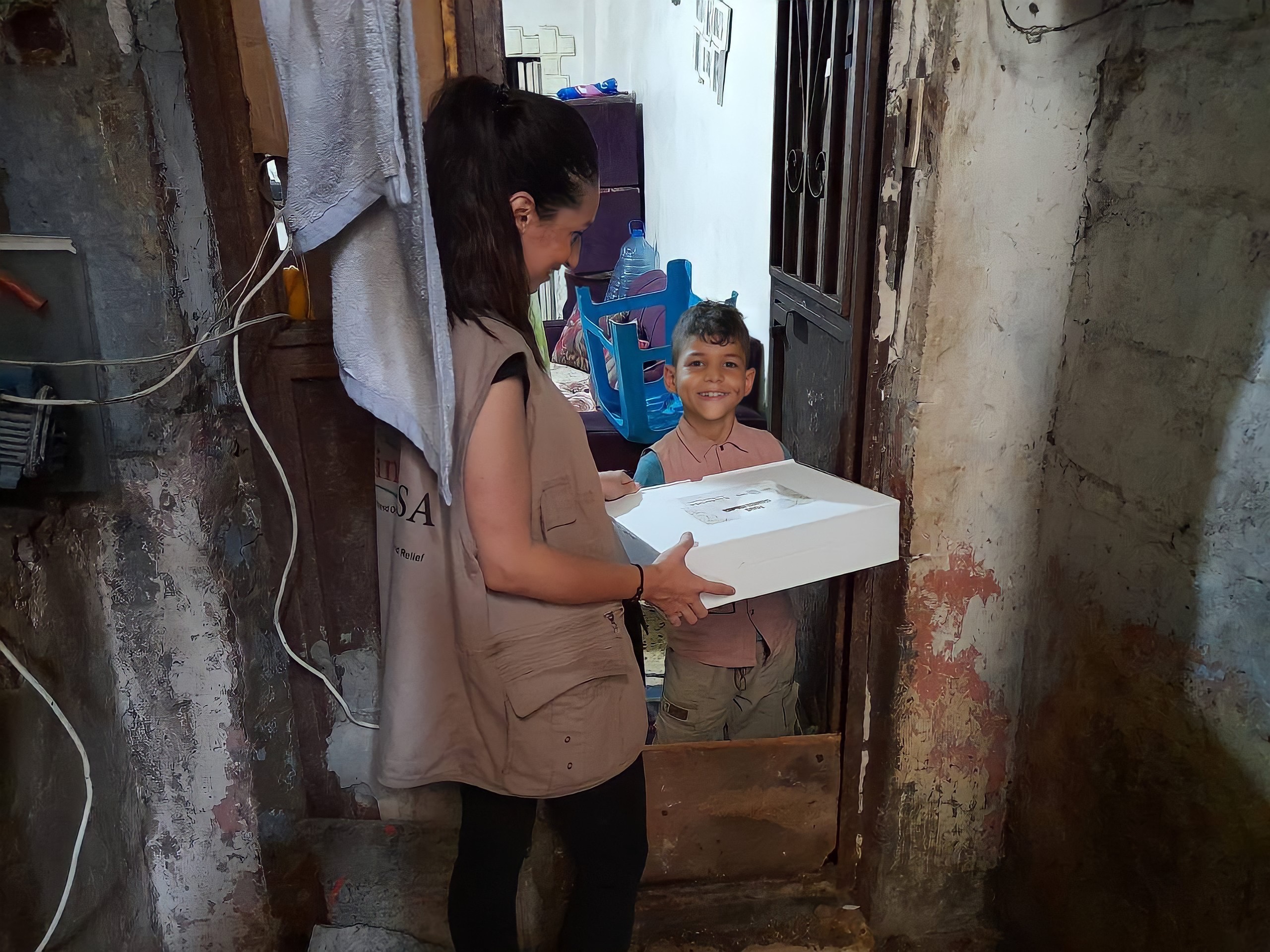 KinderUSA hopes to continue this project of food assistance to the most vulnerable beyond August. but we need your help. Please consider making an online donation today of $50, $100, $250 or whatever is meaningful to you. Thank you for your continued humanity.
KinderUSA hopes to continue this project of food assistance to the most vulnerable beyond August. but we need your help. Please consider making an online donation today of $50, $100, $250 or whatever is meaningful to you. Thank you for your continued humanity.

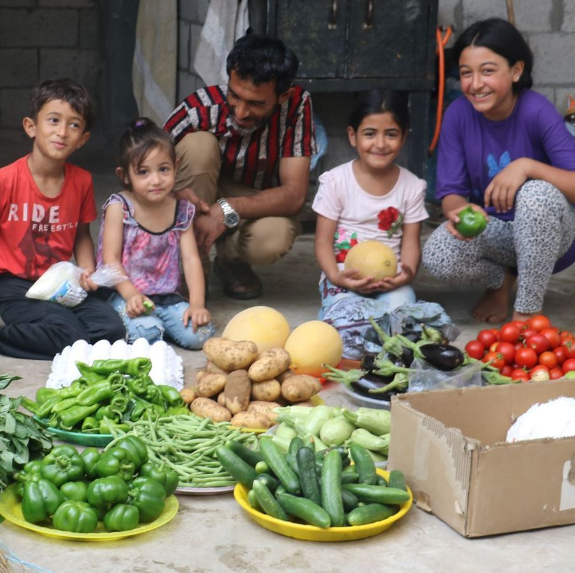
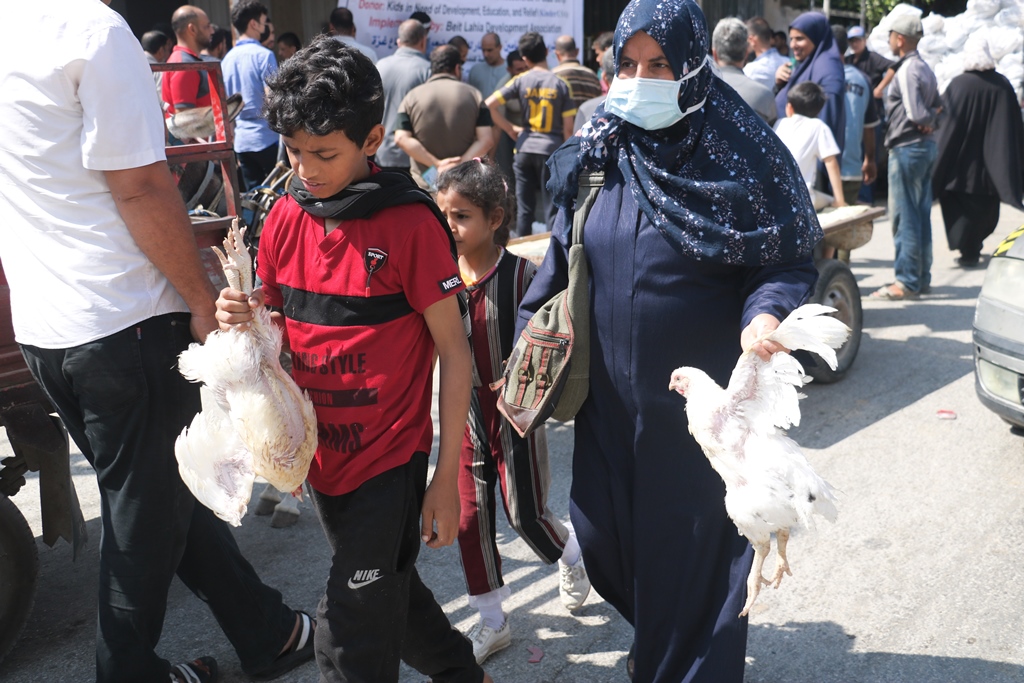 The Emergency Food Distribution program is a continuation of our Ramadan distribution. Targeting 1000 families with no or limited income living in 12 marginalized areas of Gaza. Families are receiving fresh vegetables, fruit, dairy, chickens, and more. The project contracts 20 small scale farmers and 10 women cooperatives who equally benefit through the work provided, caring for their own families.
The Emergency Food Distribution program is a continuation of our Ramadan distribution. Targeting 1000 families with no or limited income living in 12 marginalized areas of Gaza. Families are receiving fresh vegetables, fruit, dairy, chickens, and more. The project contracts 20 small scale farmers and 10 women cooperatives who equally benefit through the work provided, caring for their own families.
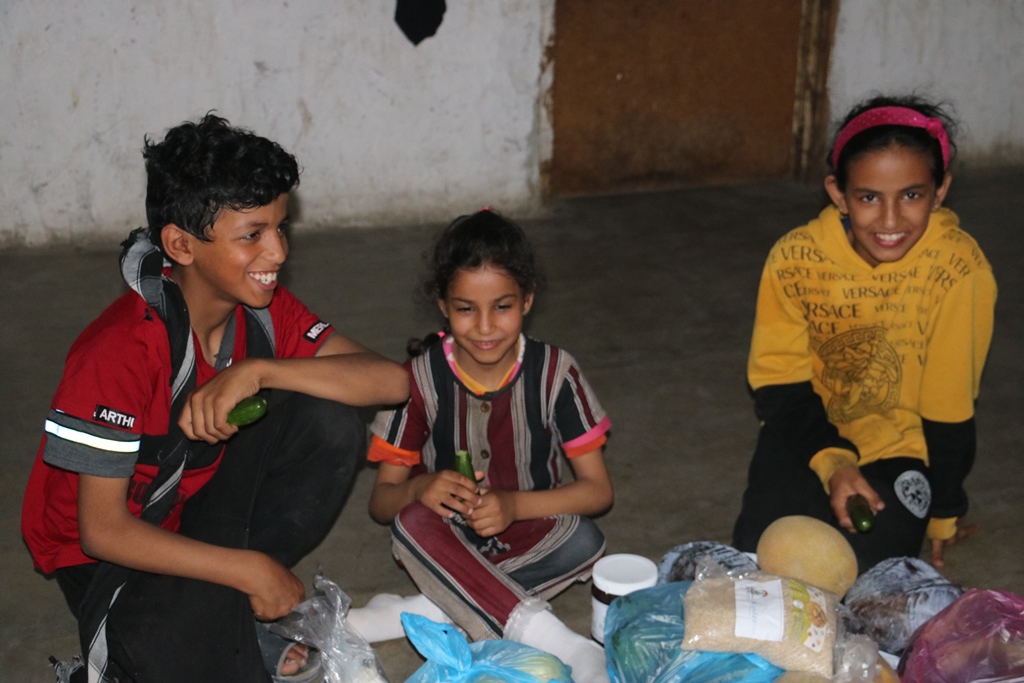 “I was super happy when I received a message [on the distribution], in that time my refrigerator was empty. When we received the food basket, we were all very happy and I felt the world was better. It contained 18 different types of fresh vegetables, including chicken and eggs,” said Zana.
“I was super happy when I received a message [on the distribution], in that time my refrigerator was empty. When we received the food basket, we were all very happy and I felt the world was better. It contained 18 different types of fresh vegetables, including chicken and eggs,” said Zana.
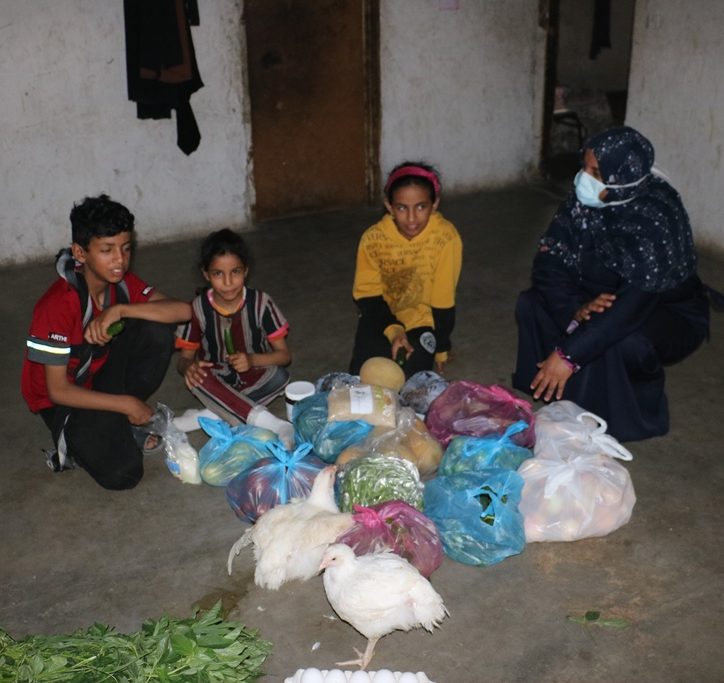
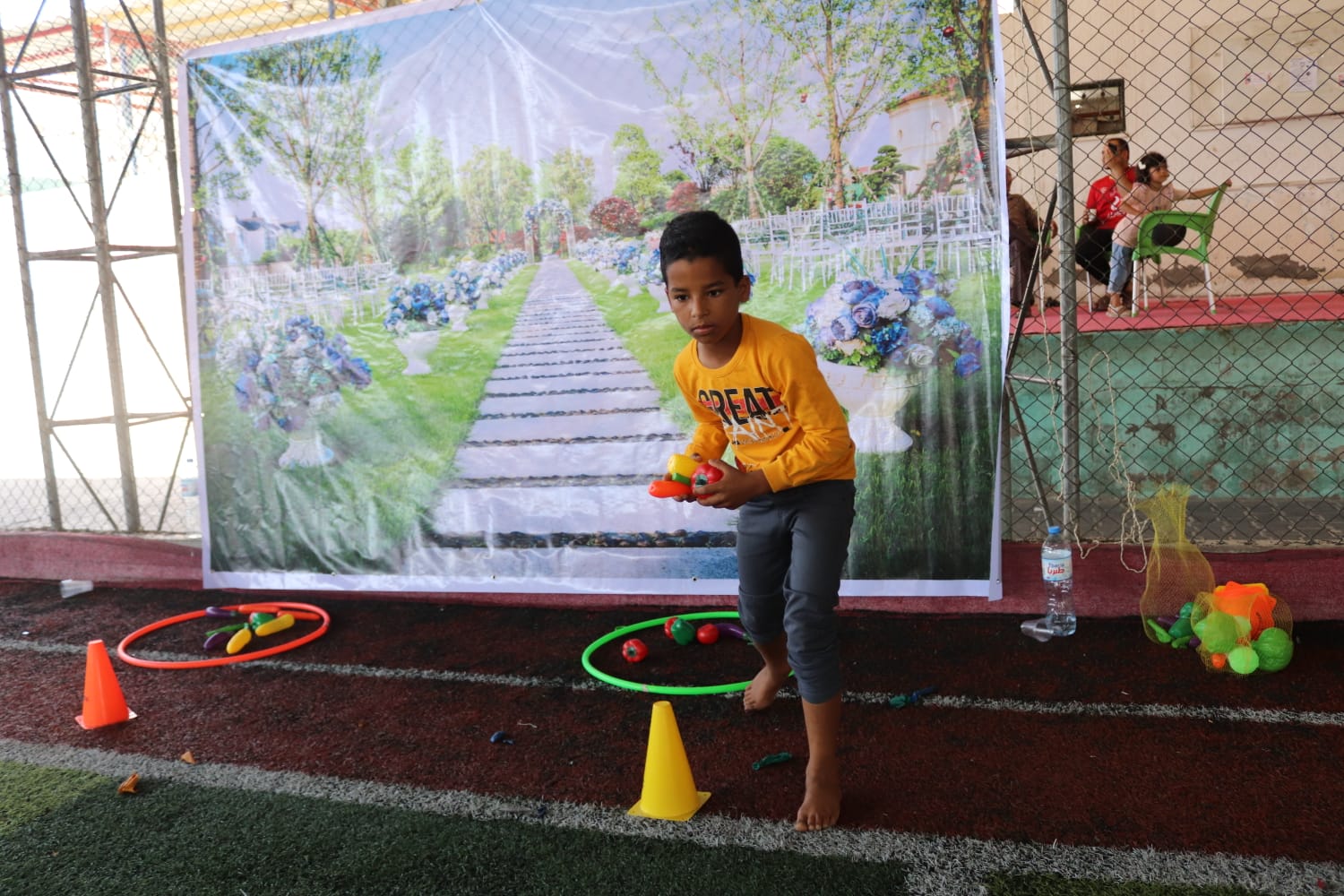 KinderUSA is providing some relief with our Gaza summer camp for children in partnership with Beit Lahia. More than 1400 children are participating in basketball, mural painting, cultural competitions, and more. One young man, Ameer, aged 10, has had a very difficult life after his father left the family and he is now being raised by his grandparents. The SC report identifies caregivers’ inability to care for their children physically and psychologically with some leaving rather than face what they perceive as failure.
KinderUSA is providing some relief with our Gaza summer camp for children in partnership with Beit Lahia. More than 1400 children are participating in basketball, mural painting, cultural competitions, and more. One young man, Ameer, aged 10, has had a very difficult life after his father left the family and he is now being raised by his grandparents. The SC report identifies caregivers’ inability to care for their children physically and psychologically with some leaving rather than face what they perceive as failure.
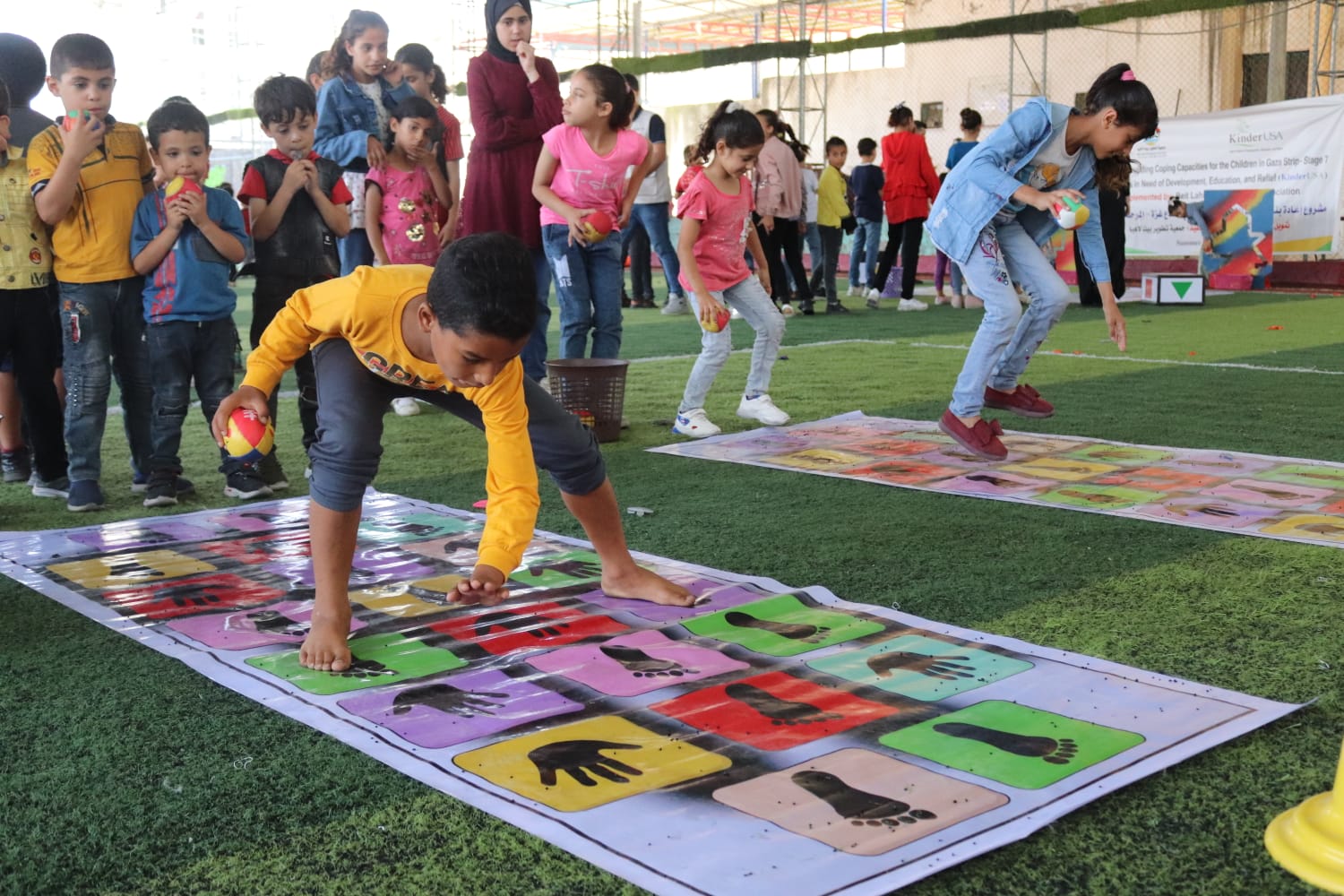 Wanting to join all the activities provided, Ameer was overwhelmed with joy. “What a day, this is one of my best days ever; I’m thrilled to be here, I like singing, and I asked the coach to give me the microphone to sing; I hope next time I will come with my sister, words cannot describe my happiness,” Ameer said!
Wanting to join all the activities provided, Ameer was overwhelmed with joy. “What a day, this is one of my best days ever; I’m thrilled to be here, I like singing, and I asked the coach to give me the microphone to sing; I hope next time I will come with my sister, words cannot describe my happiness,” Ameer said!
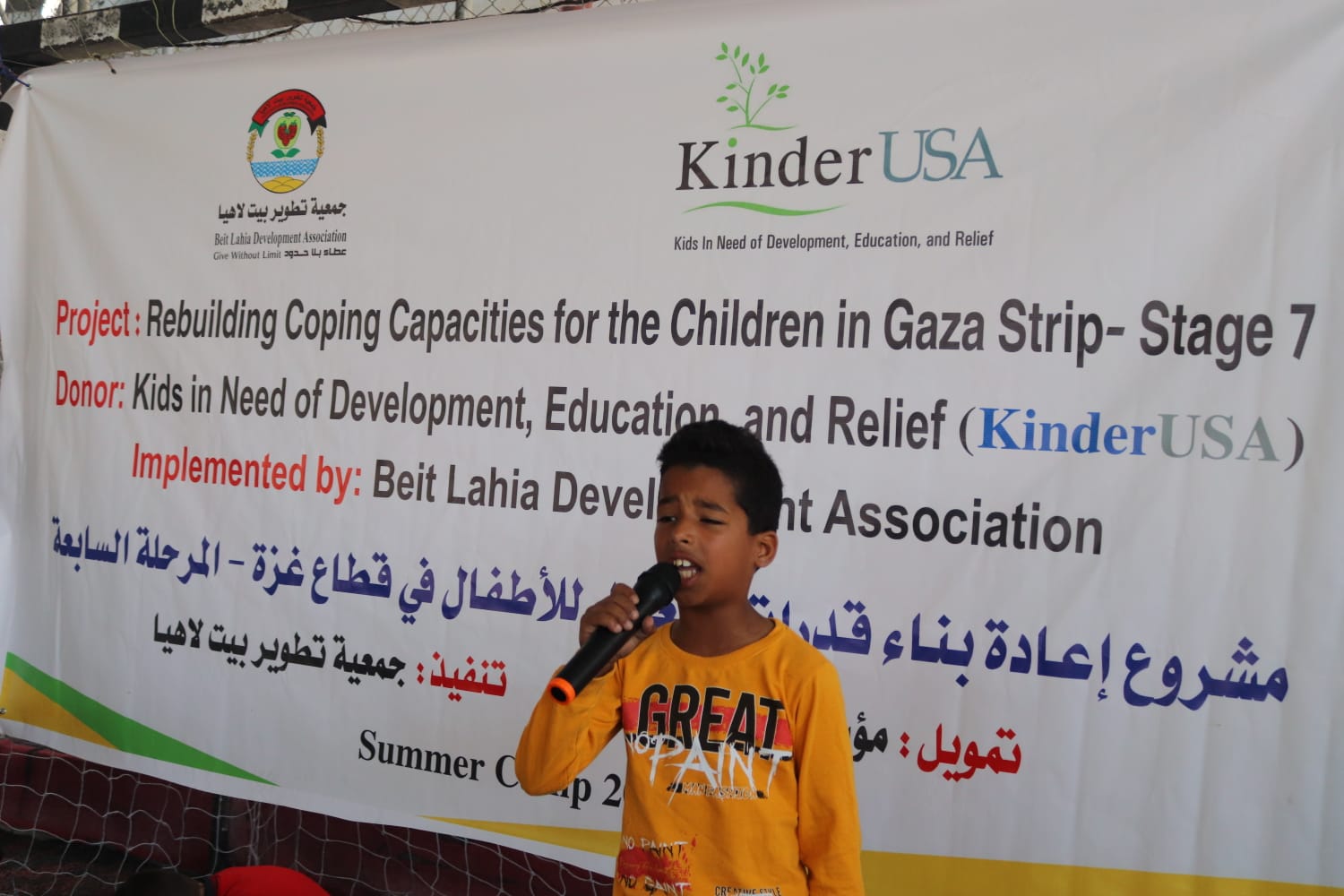 In the forward of the
In the forward of the 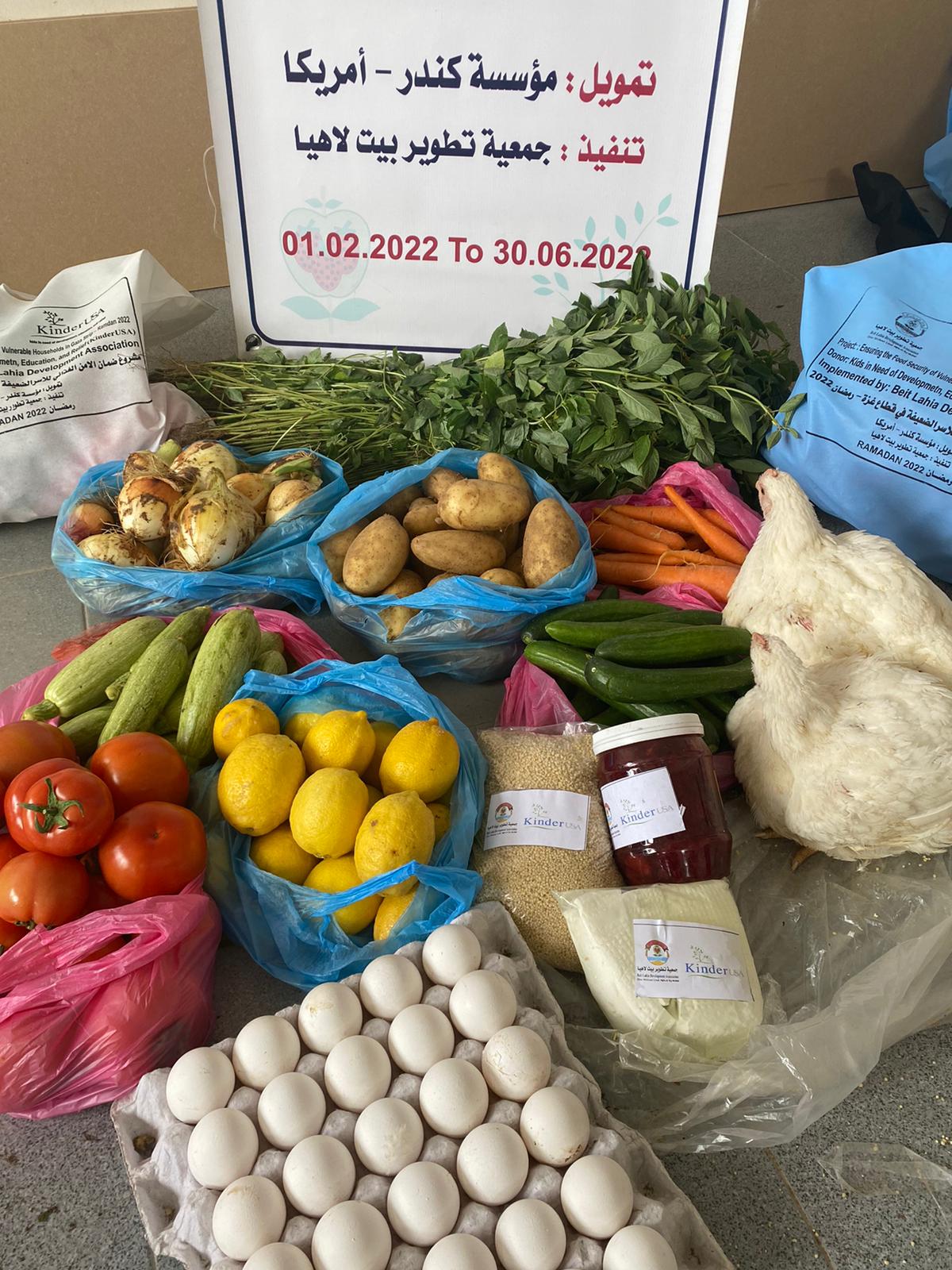
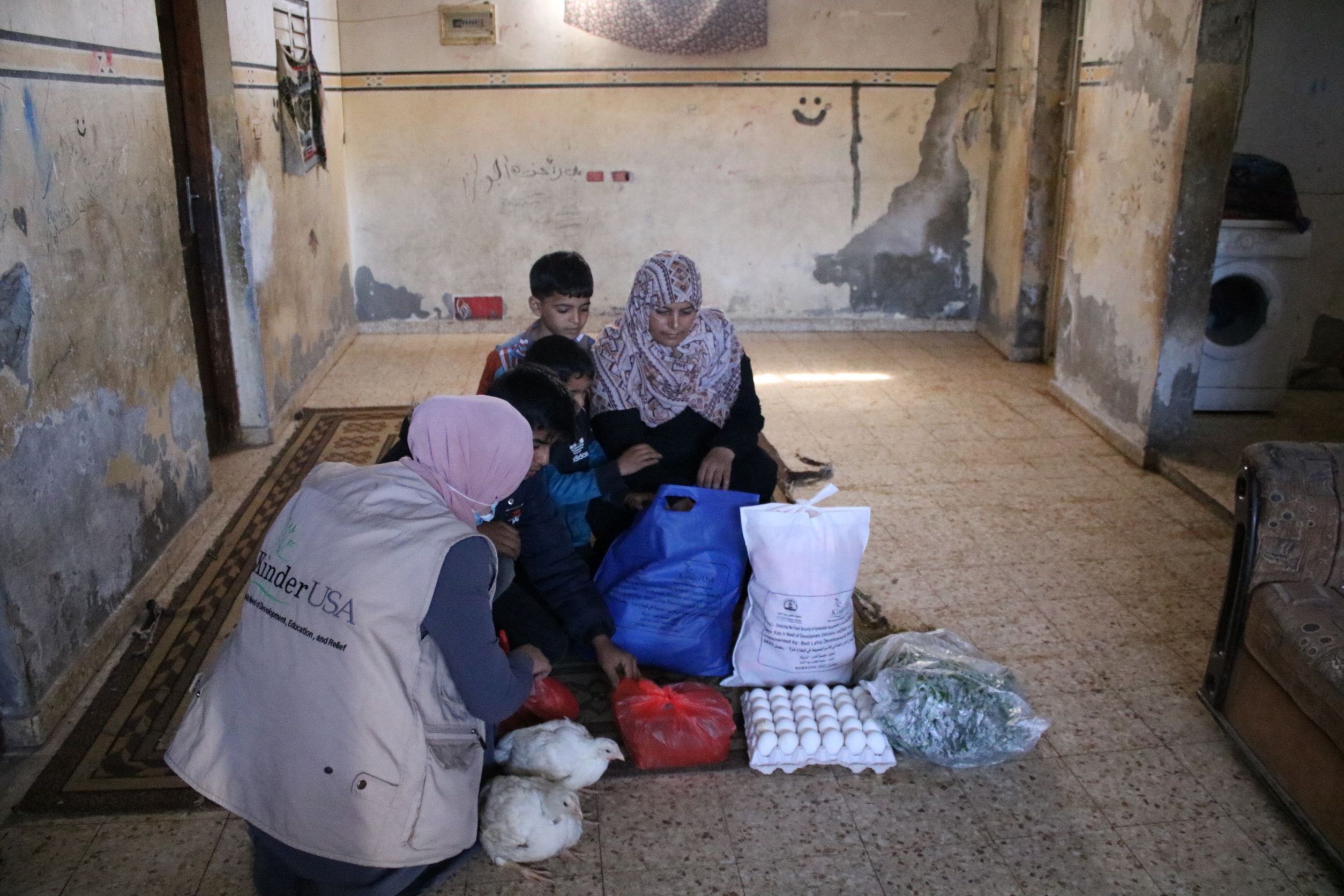
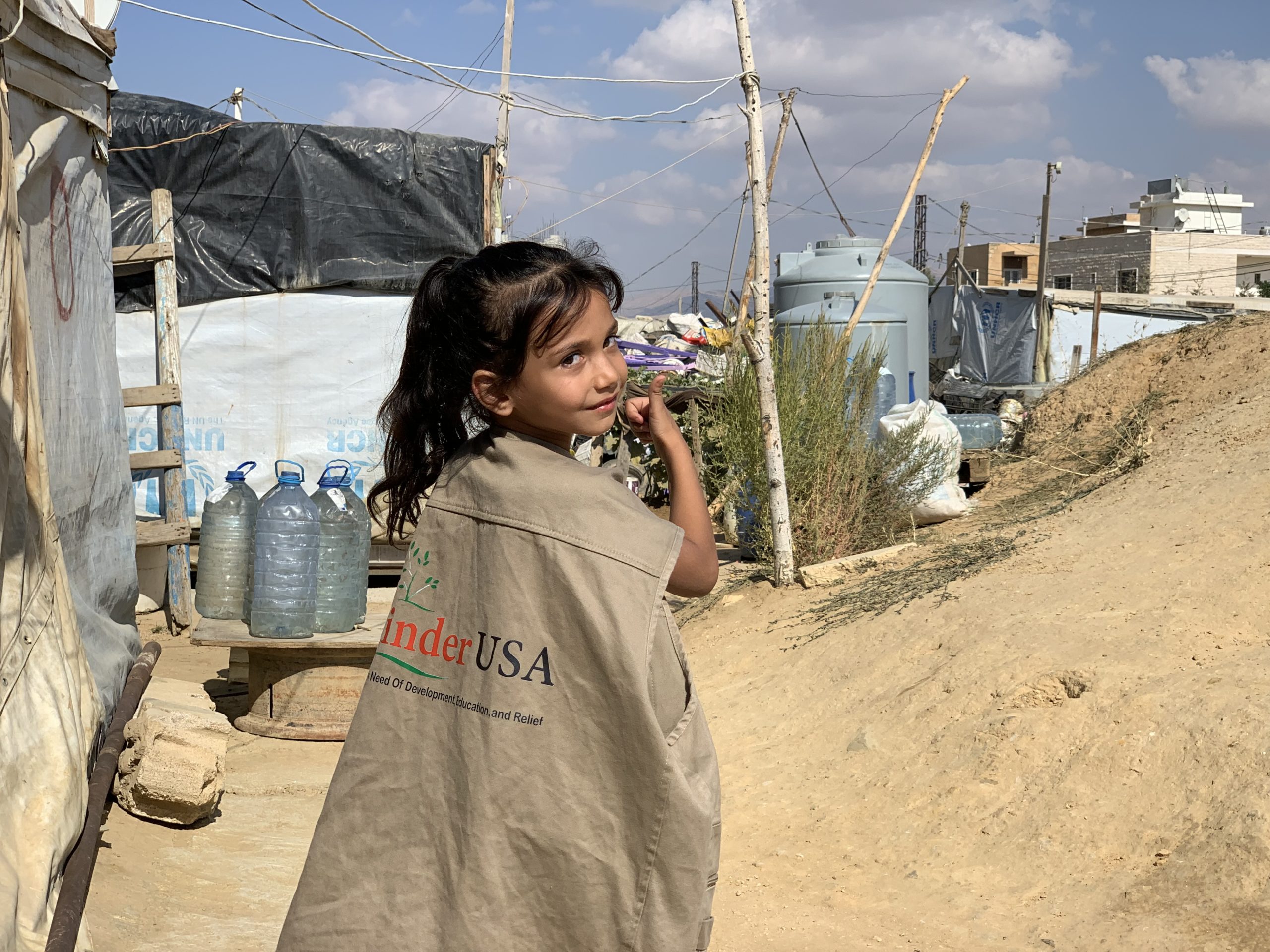 “More than half of families report that their child has had to skip meals, and hundreds of thousands of children are out of school,”
“More than half of families report that their child has had to skip meals, and hundreds of thousands of children are out of school,” 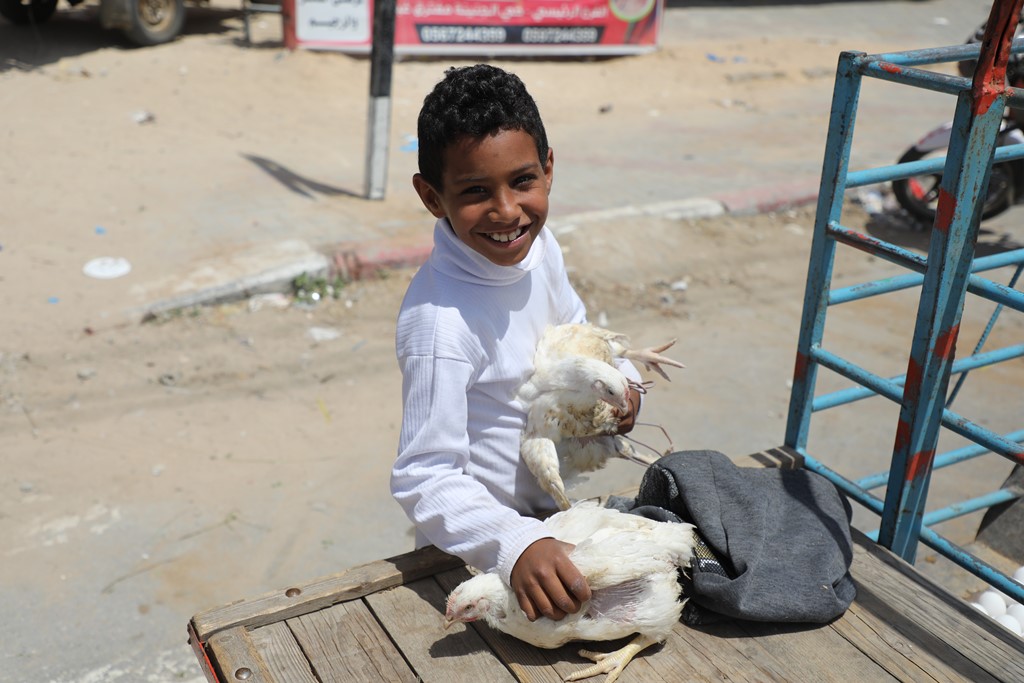 For 8 year old El Soloh who lives with his family of 5 siblings in Bourj el-Barajneh Camp in the suburbs of Beirut, a life of poverty has affected every aspect of their living conditions. His father used to work as a taxi driver but once fuel prices soared, he could no longer afford to drive and returned his rented vehicle leaving him unemployed for over a year.
For 8 year old El Soloh who lives with his family of 5 siblings in Bourj el-Barajneh Camp in the suburbs of Beirut, a life of poverty has affected every aspect of their living conditions. His father used to work as a taxi driver but once fuel prices soared, he could no longer afford to drive and returned his rented vehicle leaving him unemployed for over a year.
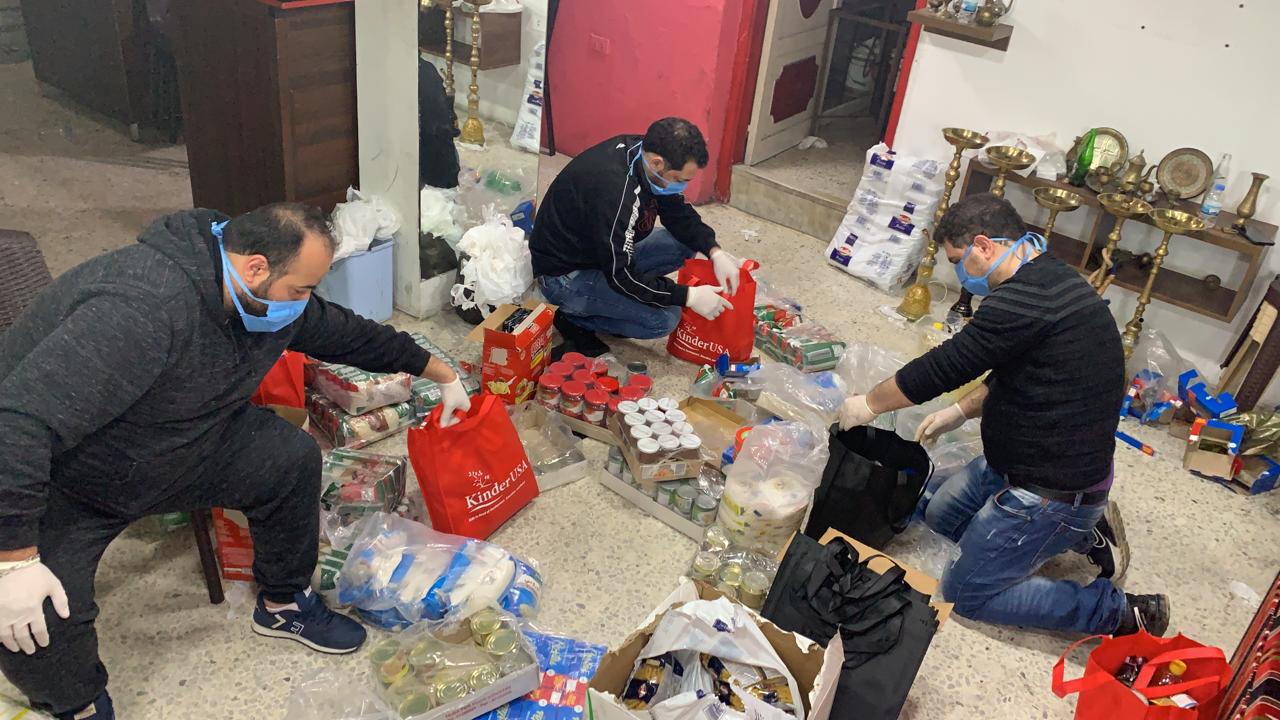 Recipients of the Ramadan food distribution, El Soloh’s family found the pleasure they once knew around the iftar (breaking of fast) table. “Soloh and his siblings reminisced back to a time when their father would come home and discuss the days work, with their mother preparing a nutritious meal,” said Loubane Tay Executive Director of FingerPrint of Change, KinderUSA implementing partner. “KinderUSA not only secured a much-needed meal but also quality time during the holy month of Ramadan within the hard conditions Palestinians face in Lebanon,” Loubane continued. ”
Recipients of the Ramadan food distribution, El Soloh’s family found the pleasure they once knew around the iftar (breaking of fast) table. “Soloh and his siblings reminisced back to a time when their father would come home and discuss the days work, with their mother preparing a nutritious meal,” said Loubane Tay Executive Director of FingerPrint of Change, KinderUSA implementing partner. “KinderUSA not only secured a much-needed meal but also quality time during the holy month of Ramadan within the hard conditions Palestinians face in Lebanon,” Loubane continued. ”
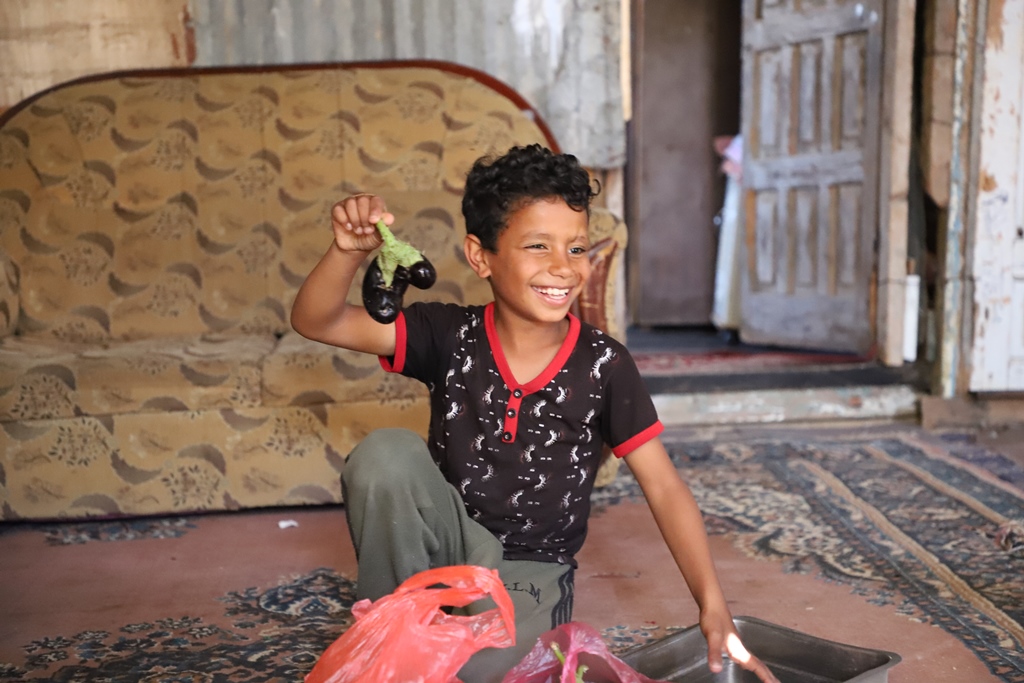
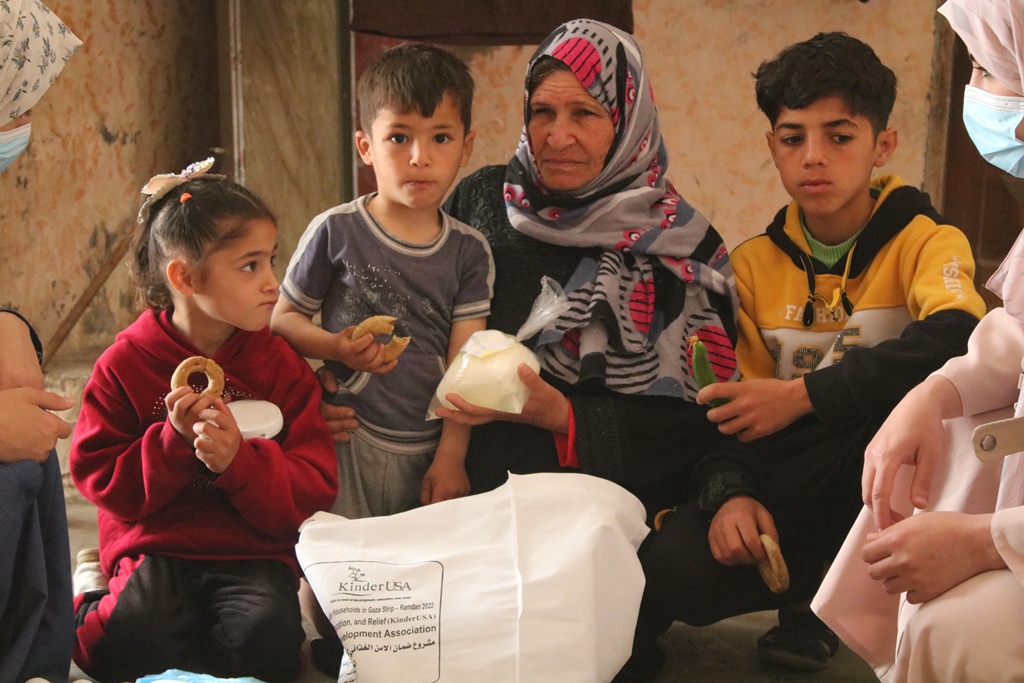
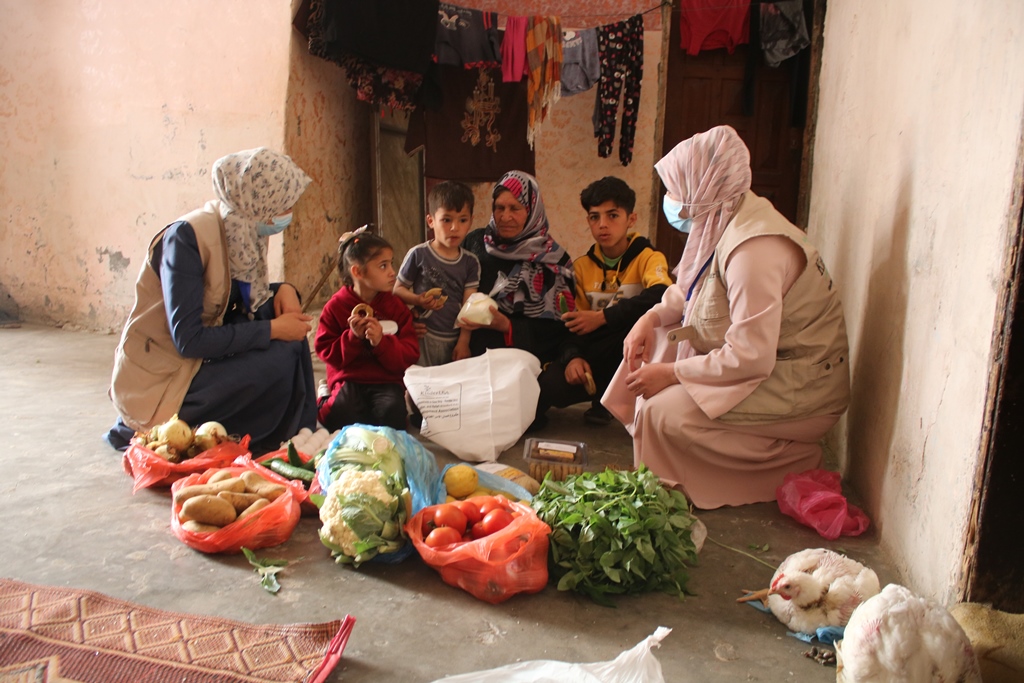
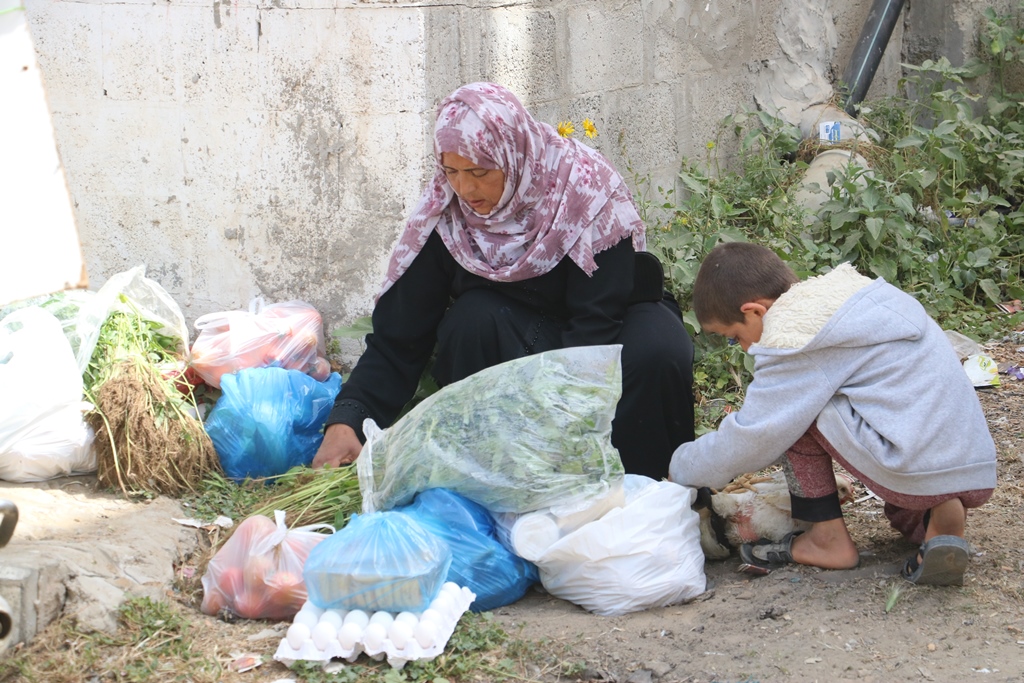
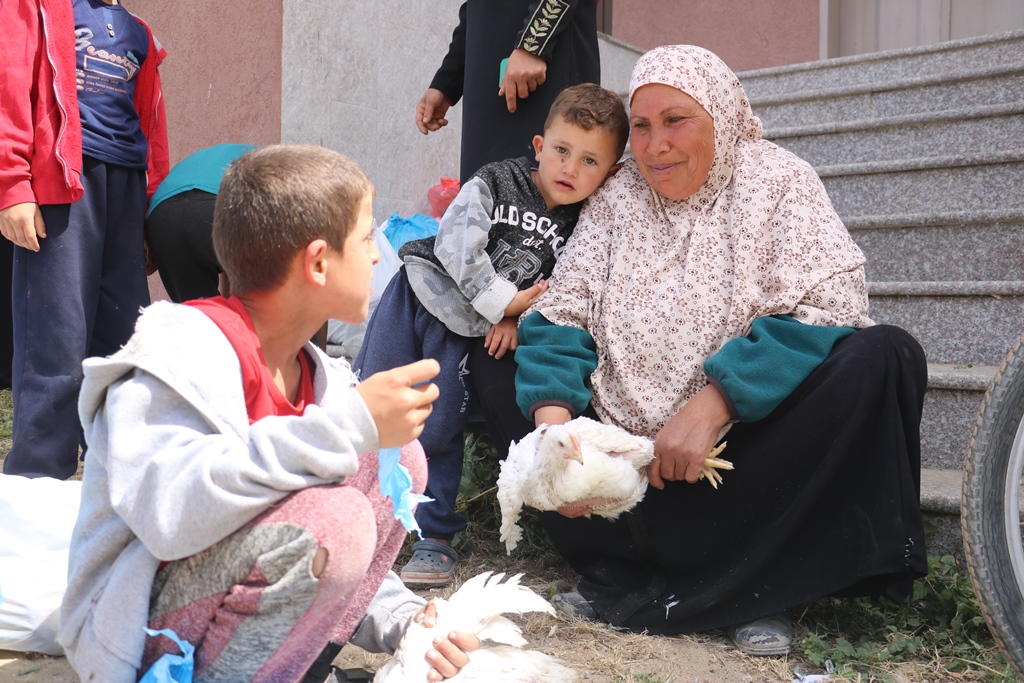
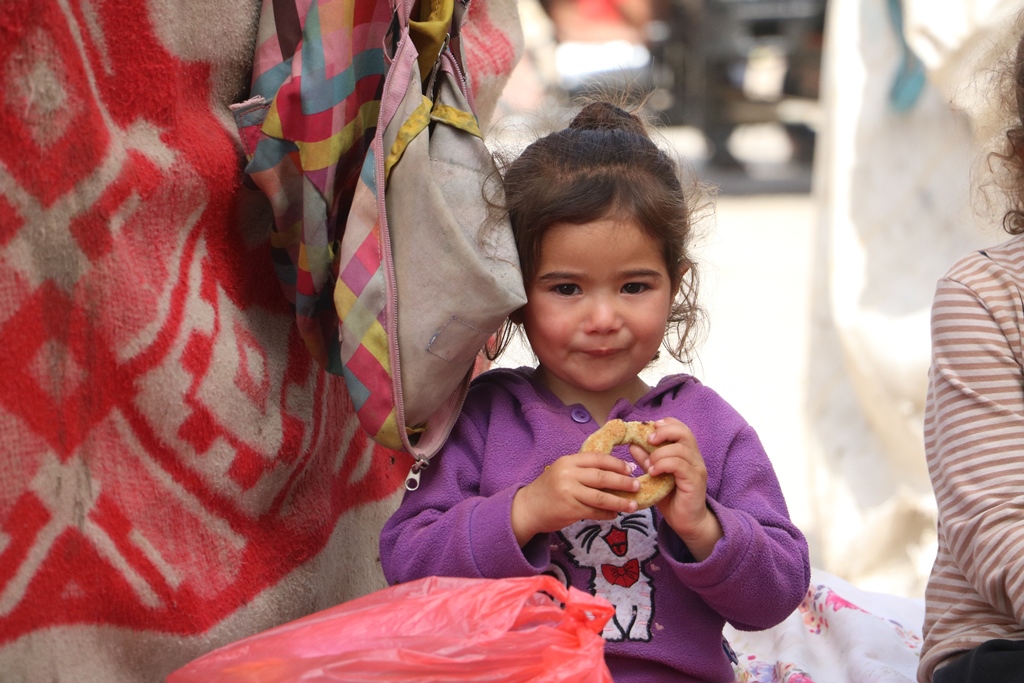
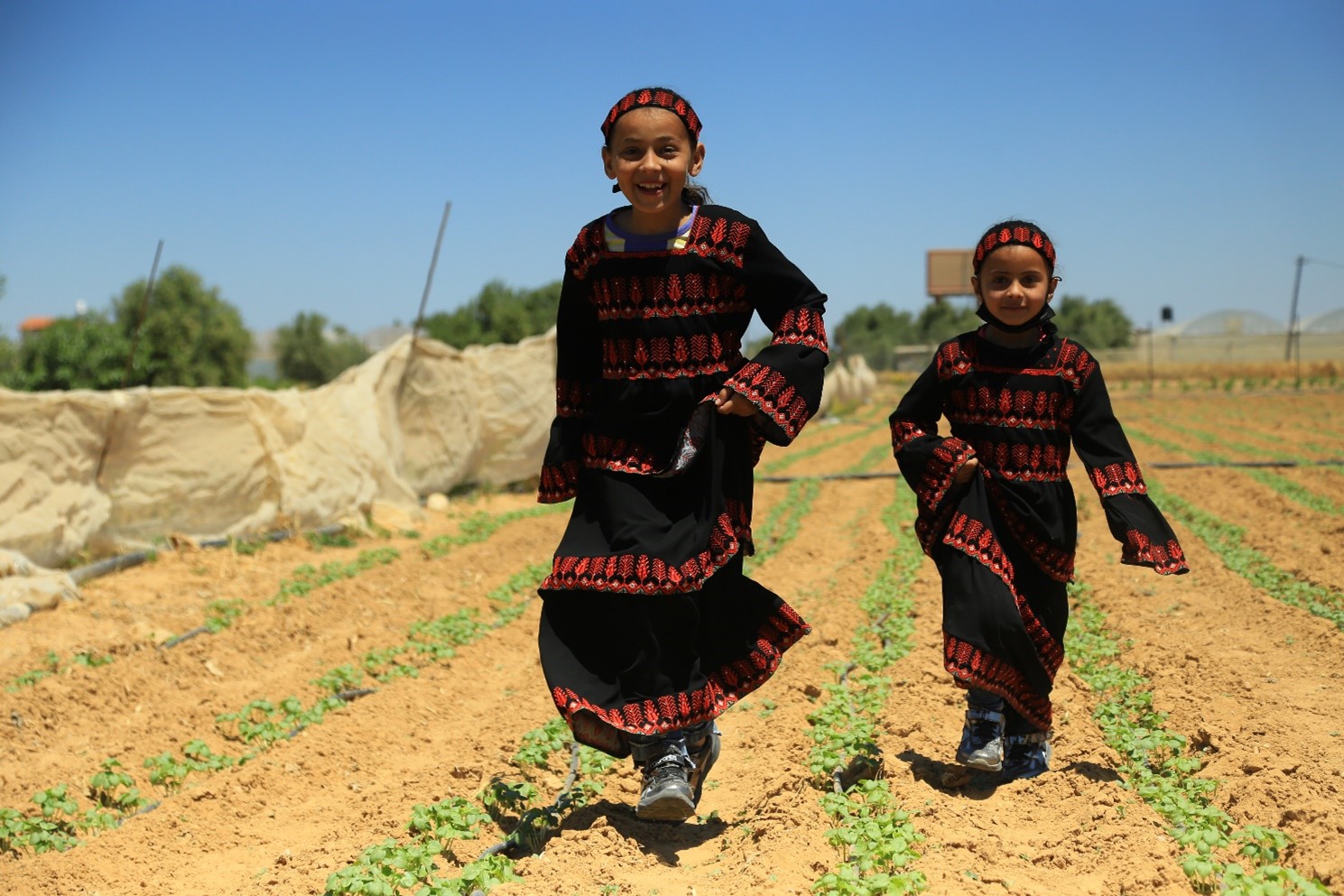 Mariam, a mother of 8, lives in Khan Younis. Without an education and a family to feed, Mariam was thrilled to be chosen as a beneficiary of the farming project. Producing zucchini and other vegetables for sale in the open market, the family works together securing their livelihood.
Mariam, a mother of 8, lives in Khan Younis. Without an education and a family to feed, Mariam was thrilled to be chosen as a beneficiary of the farming project. Producing zucchini and other vegetables for sale in the open market, the family works together securing their livelihood.
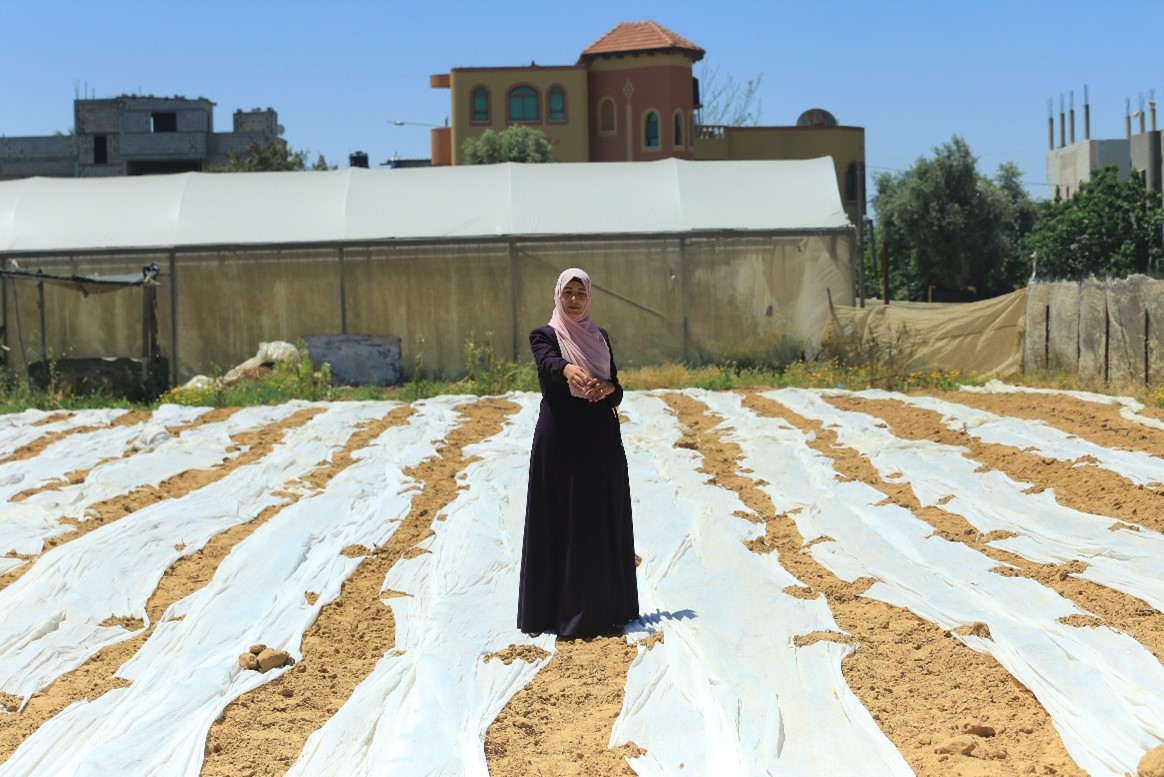 Haneen also lives in the Khuza’ area of Khan Younis supporting a family of 5 with no source of income. She applied for the farming project hoping to be selected after attending an introductory workshop.
Haneen also lives in the Khuza’ area of Khan Younis supporting a family of 5 with no source of income. She applied for the farming project hoping to be selected after attending an introductory workshop.
